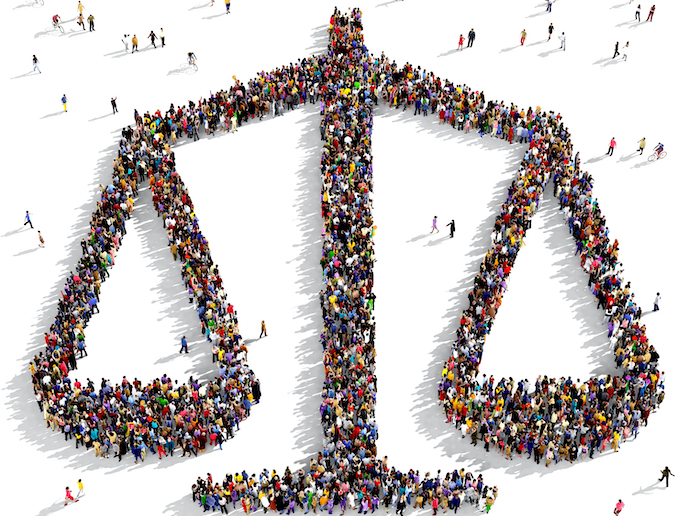Research aims to make justice and fairness real to Europeans
The starting point for the researchers behind ETHOS(opens in new window) was that, while it is possible to talk about a European set of values, such as respect for human rights or protecting vulnerable groups, the concept of justice is only implicit in this. “When you read the founding documents of the EU, justice often remains undefined,” says Dorota Lepianka, senior researcher in interdisciplinary social science at Utrecht University(opens in new window) in the Netherlands and ETHOS co-coordinator. “Our role is to construct a European theory of justice that could respond to the tough times Europe has been going through.” The team set out to explore how justice is practised in four domains: civil, social, economic and political. They analysed philosophical and political traditions, legal frameworks, daily institutional practice and public debate. The experiences of vulnerable populations in six European countries was also considered. “We went back and forth between empirical findings and philosophical debate,” says Trudie Knijn, professor of interdisciplinary social science at Utrecht and ETHOS co-coordinator. Comparing the rules in the six countries and how they affect vulnerable populations produced interesting findings. One such finding was the gap between the rights of minorities on paper at supranational level and the extent to which people can exercise those rights in Member States. “The people who have to put these agreements into practice sometimes do not know they exist,” says Knijn. “Putting them into practice at the lower levels of government is failing.”
From rights to blame
A policy analysis on welfare benefits in the six countries revealed a slow and steady shift, since the financial crisis of 2008, from a system of rights to an approach based on merit and reciprocity. “There is very much a trend towards blaming people,” says Knijn. “People have to deserve their benefits these days and this is transformed into having to earn them.” The idea of reciprocity came originally from the Nordic countries, where people would be offered training to get them into meaningful work. “But now it is lousy jobs and meaningless work, so people are punished for not being equipped for the labour market,” says Knijn. The search for an integrated theory of justice for Europe ran in parallel to this work. The team chose to develop a non-ideal theory which could provide guidance on how to make Europe a fairer place. “We identify an issue which most people agree is unjust, for instance limited access to education for children with disabilities,” says Lepianka. “Then we say if we want to create more justice for these children, then these are the possibilities.”
Making justice real
Diagnosing specific problems, and proposing a range of solutions, can make justice more real and engaging. By making the concept less abstract, the ETHOS teams feel it is easier for people to agree on a better approach. Much of the thinking and findings of ETHOS will be recorded in ‘Justice and vulnerability in Europe’, due to be published by Edward Elgar Publishing in September 2020. “This will offer arguments for why justice is not just a monolithic idea, but something which is present in our daily lives. You will also find all kinds of analysis of how and why justice is applied, or fails to be applied in European countries,” says Knijn.






